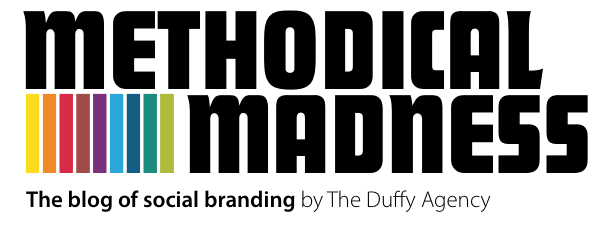Google hijacks your brand
 Friday, March 26, 2010 at 2:33PM
Friday, March 26, 2010 at 2:33PM
Another landmark digital court verdict was announced this week and, big surprise, it involves Google. The European Court of Justice in Luxembourg ruled this week that Google could sell AdWords to anyone on any word. The issue at had was whether advertisers should be allowed to use the competition’s name as keywords. Basically, if I own a Holiday Inn in Dallas, TX and someone else owns a cheap motel, they can buy ad words that are featured whenever someone searches for “Holiday Inn Dallas.”
In this case, Holiday Inn is Louis Vuitton Malletier. The fashion giant sued Google in 2004 because companies selling knock off versions of their products were buying keywords that were trademarked by Louis Vuitton. They claim that Google not only allows people to freely trade on their brands, but also aids them in finding keywords to help knockoff brands infringe on their trademark. In effect, Google not only allows but facilitates people in hijacking of a brand for their own purposes.
As YouTube videos, mock Twitter accounts, AdWords and Facebook fan pages become more popular, corporations are in danger of losing control of their brand and trademark. Incidents of brands being hijacked by others are growing. AMC ran into this problem with people creating character profiles for their series Mad Men. At first, AMC demanded that Twitter take down the accounts, but after heaps of bad publicity, they recanted and allowed the profiles to remain as long as they were working in the best interest of the series.
As the Louis Vuitton case demonstrates, trying to sue technology into submission isn’t going to work. But that isn’t to say there’s nothing you can do to protect your brand. Here are a few steps you can take to keep hijackers off your ship.
Register your brand/product name early on social media sites – Even if you never intend to use Bebo, Friendster, Twitter, Facebook, or YouTube, it’s good to capture your brand’s name before others can. Most of these sites have a private function so you don’t have to make the account visible.
Track your brand buzz – Brand buzz has never been more important. Internet memes come and go so fast you have stay on top of what is being said constantly. It’s impossible to respond to brand jacking if you’re not aware that it’s happening.
Conduct proper SEO for brand sites – Search engine optimization has become of the utmost importance not just for search engine ranking, but also preventing brand hijacking. If a website is on the first page of a search result, it’s less likely that third party sites can gain significant traction over the branded website as far fewer people click on the paid ads than the organic search results. But if your site doesn’t appear on the first page of results, you’re just asking for others to steal your traffic.
Buy misspellings of you brand name – People misspell words all the time online. So wouldn’t it be great if when someone misspelled your product’s URL, it still took them to the correct site? Purchasing common misspellings of your brand’s url and redirecting them to the correct URL will increase web traffic and make it much easier to get your site to the top of multiple search engine results.

The French case reminds us that when it comes to your brand, Google and social media have made due-diligence more important than ever. Corporations have to learn how to become nimble and adjust to the new online paradigm instead of sitting back, calling Google evil, and wondering why the world is passing them by.
Stefan Halley is the Digital Project Leader for The Duffy Agency. He loves to talk about social media.


Reader Comments